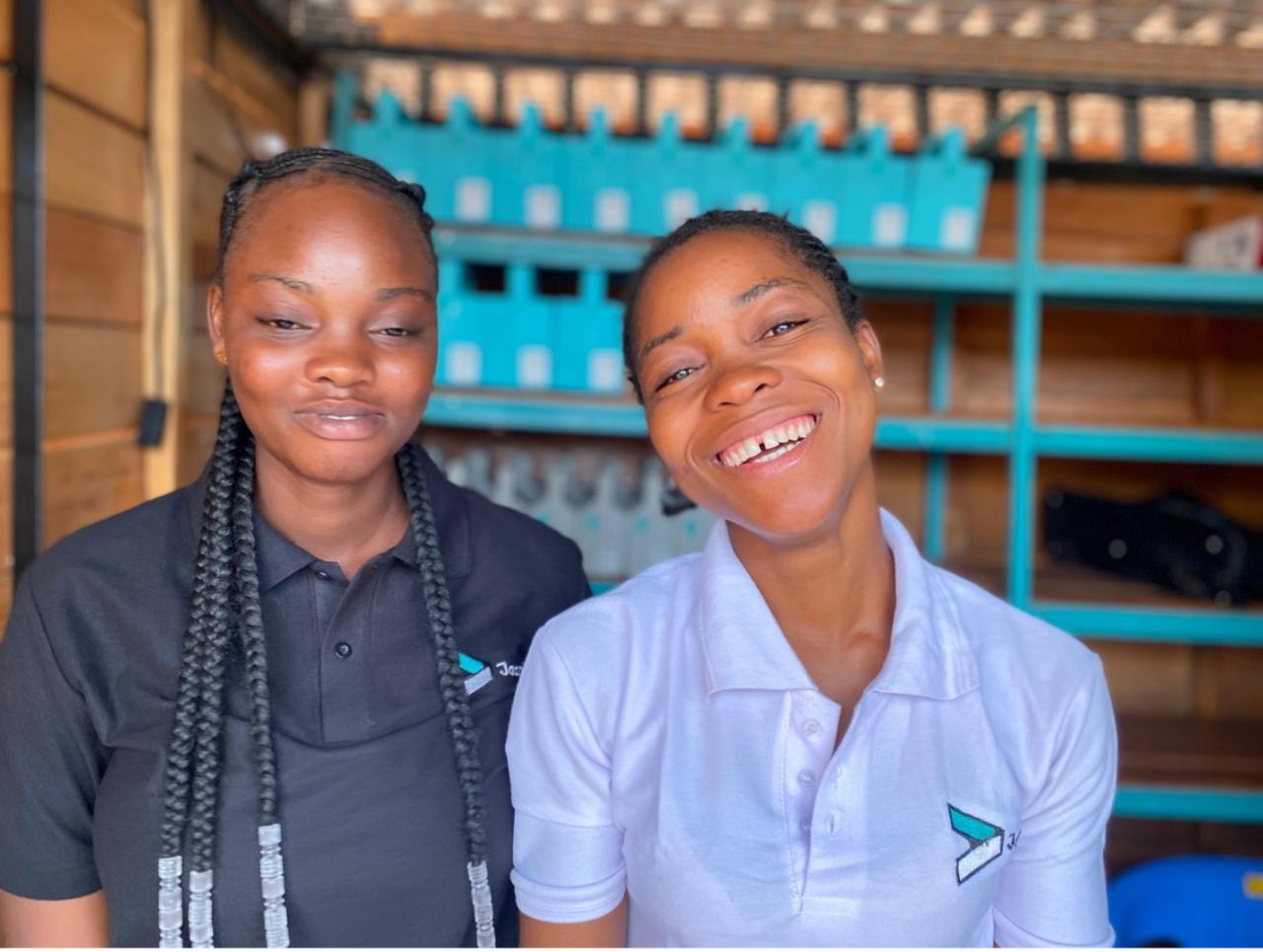The Cisco Foundation: Investing in Africa's Clean Energy Transition
- None.
- None.
Insights
The Cisco Foundation's commitment of $100 million to climate ventures in Africa represents a strategic investment in the region's burgeoning clean energy sector. This move aligns with global trends toward renewable energy sources, which are increasingly viewed as both a moral imperative and a significant economic opportunity. The focus on early-stage climate ventures like SHYFT Power Solutions and Jaza Energy indicates a push to harness innovative solutions that address the unique challenges of energy distribution in sub-Saharan Africa.
From an energy sector perspective, the shift towards distributed energy resources (DERs) such as microgrids and off-grid solutions is particularly noteworthy. These technologies are critical in regions where traditional grid expansion is untenable due to geographical or financial limitations. In sub-Saharan Africa, the reliance on solar mini-grids has grown, reflecting a broader global trend towards decentralized energy solutions. This growth suggests a potential for scalable business models that can attract further investment and drive down costs through economies of scale.
Stakeholders, including investors and local communities, stand to benefit from these developments. Increased access to electricity can drive economic growth, improve quality of life and unlock digital innovation. For businesses, this represents a new market frontier with long-term growth potential, although initial investments in early-stage ventures carry inherent risks. The success of these ventures will likely depend on their ability to navigate regulatory environments, achieve cost efficiencies and scale operations.
The Cisco Foundation's investment is a significant indicator of the role that private foundations can play in advancing sustainable development goals (SDGs), particularly in regions with acute infrastructure needs. The focus on clean energy aligns with SDG 7, which aims to ensure access to affordable, reliable, sustainable and modern energy for all. By addressing the energy gap in sub-Saharan Africa, the foundation's strategy contributes to several other SDGs, including poverty reduction, improved health and enhanced educational outcomes through better energy access.
However, the long-term impact of such investments hinges on their integration with local communities and economies. Sustainable development requires not only the provision of technology but also capacity building, local job creation and the development of maintenance and support structures. The challenge lies in creating a self-sustaining ecosystem that can continue to thrive beyond the initial investment period. This approach can lead to a multiplier effect, where each dollar invested yields returns in social, economic and environmental progress.
Moreover, the emphasis on digital innovation as a catalyst for growth suggests that these energy solutions may also serve as a platform for further technological advancements in the region, potentially leapfrogging more established technologies in developed countries. This could result in unique, locally-tailored digital solutions emerging from Africa, with the potential for global scalability.
By Elias Habbar-Baylac
NORTHAMPTON, MA / ACCESSWIRE / January 16, 2024 / Our conviction in Africa's vast potential is part of what fuels the climate investment strategy of the Cisco Foundation. Among our vision, we see the transition to clean energy not just as a necessity, but as a catalyst for inclusive growth and digital innovation. And through the Cisco Foundation's

Solving Africa's Energy Gaps
Africa's energy landscape is confronting a critical shortfall, with roughly 600 million people in sub-Saharan Africa still lacking electricity, accounting for over
Digitalization in Africa's Energy Transition
In the realm of digital innovation, we must create seamless integration between off-grid and on-grid systems to ensure reliable and continuous access to electricity. This integration is key to transitioning from intermittent power supplies to a stable and resilient energy infrastructure. Other innovation priorities include the growth of cost-effective, scalable off-grid solutions that can reach the most vulnerable citizens, who are living at or under the global poverty line of
Internet of Things (IoT) solutions are also essential in enhancing the efficiency and scalability of distributed energy resources, such as off-grid systems, solar panels, and storage solutions. These technologies enable real-time monitoring and management of energy assets, thereby optimizing energy distribution and consumption. The Cisco Foundation is eager to support the potential of information and communication technologies, including IoT and software-enabled off-grid energy, to support the climate transition.
Enter our new portfolio investees, SHYFT Power and Jaza Energy. SHYFT Power is pioneering the use of IoT to efficiently manage energy resources, while Jaza Energy is innovating by integrating solar-powered hubs with telecommunications towers. These initiatives illustrate the powerful synergy between connectivity and energy, which play a pivotal role in empowering underserved communities and contributes to a more connected and sustainable future in Africa. As part of the broader Cisco family, these investees of the Cisco Foundation Climate Commitment can access an extensive range of in-kind resources and volunteer advisory. This support not only furthers these technologies but also underscores our commitment to fostering innovative, sustainable, and more inclusive solutions globally.
SHYFT Power: Software & IoT Innovation for Reliable Clean Energy
SHYFT Power Solutions, a 2017 Cisco Global Problem Solver Challenge recipient emerging from Stanford University, is transforming energy management in Nigeria, and has become a key player in the Cisco Foundation investment portfolio. Their advanced platform integrates various power sources to improve energy efficiency and encourage clean energy adoption. The innovation that SHYFT brings to the table is further exemplified by its utilization of IoT, software, and smart meter solutions, which are essential in tackling the energy access and reliability issues prevalent in Nigeria.
The positive impact of SHYFT Power has been echoed by its customers, as illustrated by the glowing feedback from Bola Yusuf, General Manager at Wemabod Towers in Ikoyi. He asserts, "As a property and facilities managers of a high-brow building providing 24-hour power, energy efficiency is crucial for us, and SHYFT has been instrumental in achieving transparency. Their smart energy solutions allow us to effectively monitor and optimize consumption, reducing costs, and supporting sustainability. What sets SHYFT apart is their exceptional customer support - prompt, knowledgeable, and they provide solutions tailored to our needs. They have been a valuable partner in our journey towards energy efficiency and cost savings."
This direct endorsement underscores the seamless integration of IoT technology within their systems, demonstrating how digital solutions can significantly bolster sustainable energy management. SHYFT's approach is pivotal in reducing carbon emissions and serves as a standard in the management of distributed energy resources. It's with great enthusiasm that we join an esteemed list of climate investors backing SHYFT Power, including Powerhouse Ventures, Third Sphere, and KawiSafi Ventures.
Jaza Energy: Empowering Communities with Sustainable Energy
Jaza Energy, another new investment portfolio company, is revolutionizing clean energy access in Tanzania and Nigeria with its solar hubs.
In Tanzania,
By leveraging digital tools and advanced batteries, Jaza addresses the energy deficit impacting 600 million people in sub-Saharan Africa, where annual fossil fuel expenditure reaches
Jaza employs over 250 local women as "Jaza Stars," further amplifying its social impact. One Jaza Star, employees responsible for sales and community development, from Mchori expressed, "After working with Jaza, I participate in decision-making in my family," highlighting the empowerment brought by these roles.
We proudly support Jaza's mission for a more inclusive future, alongside partners like Canada's Active Impact Investments. This initiative exemplifies our dedication to innovative, sustainable solutions, aligning with the Cisco Foundation's vision of sustainable community development.
Climate Investments for a Sustainable, Inclusive Future
The Cisco Foundation is a distinct legal entity established in 1997 by a gift from Cisco. But the Foundation's work reflects Cisco's strength as a tech leader; its purpose to Power an Inclusive for All; and its strategic environmental sustainability priorities to accelerate clean energy adoption, transition to a circular model, and invest in resilient ecosystems. By supporting climate ventures like SHYFT Power and Jaza Energy and pre-seed innovation platforms like The Catalyst Fund, the Cisco Foundation invests in a vision of a regenerative future where connectivity, advanced technologies and sustainability coalesce to power inclusive growth in Africa. Our climate investments through the Cisco Foundation reflect our vision for an inclusive, resilient, and sustainable future for Africa, and they embody our belief in a world where technology can drive sustainability, fostering an inclusive future for all.
View original content here.
View additional multimedia and more ESG storytelling from Cisco Systems Inc. on 3blmedia.com.
Contact Info:
Spokesperson: Cisco Systems Inc.
Website: https://www.3blmedia.com/profiles/cisco-systems-inc
Email: info@3blmedia.com
SOURCE: Cisco Systems Inc.
View the original press release on accesswire.com







